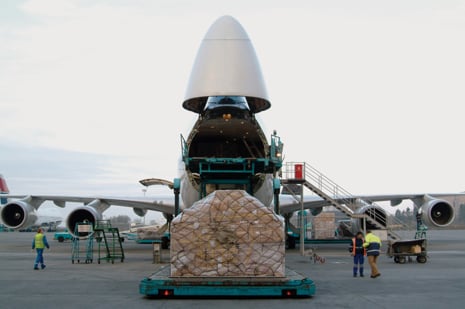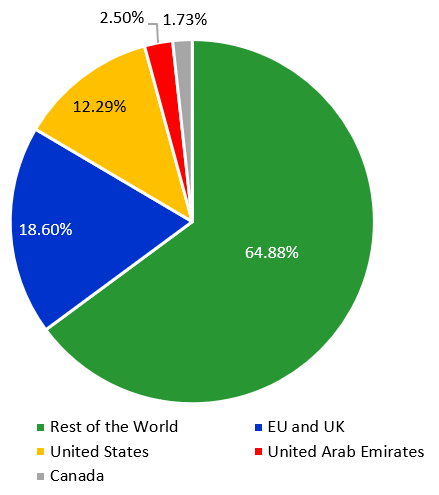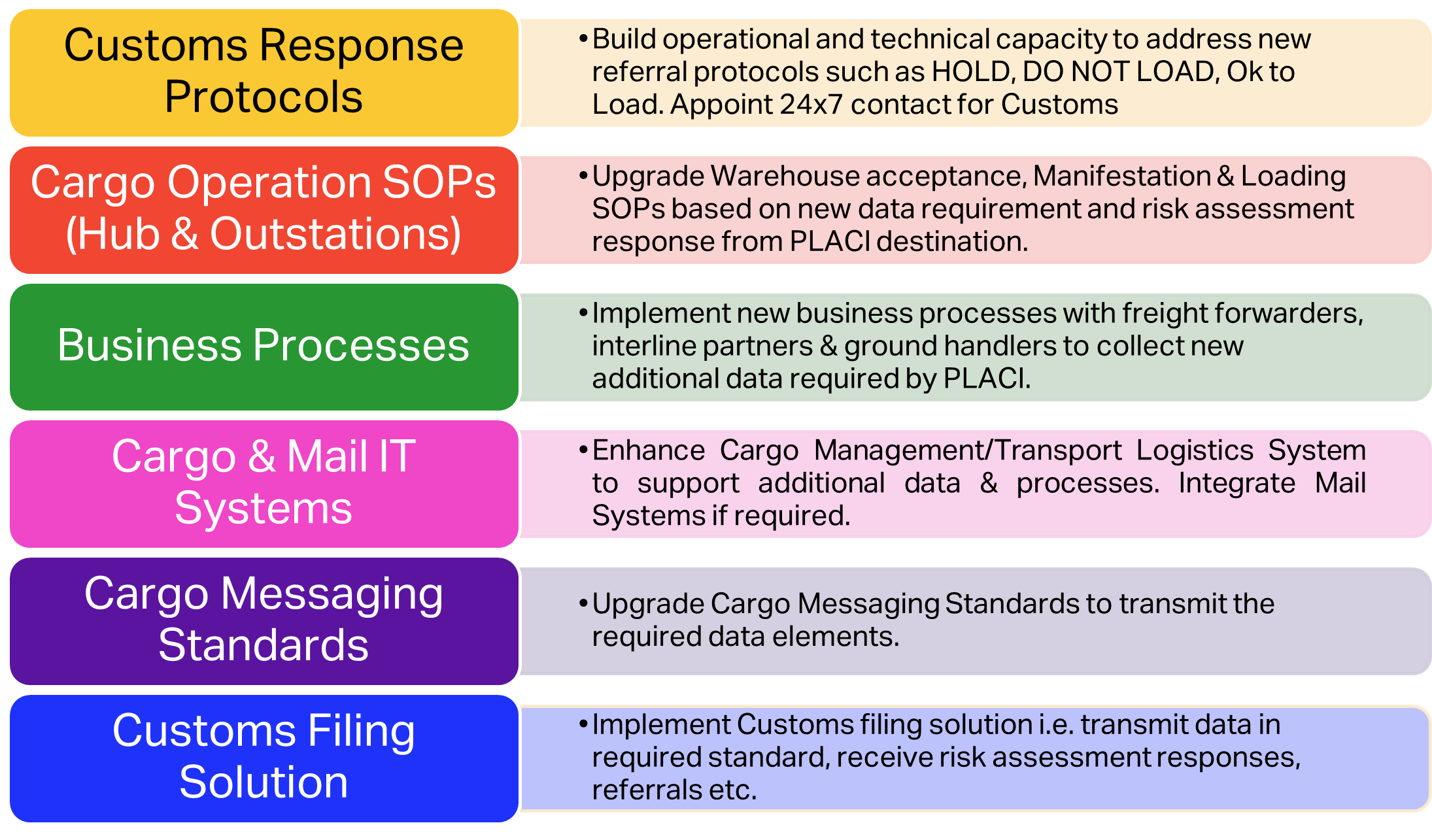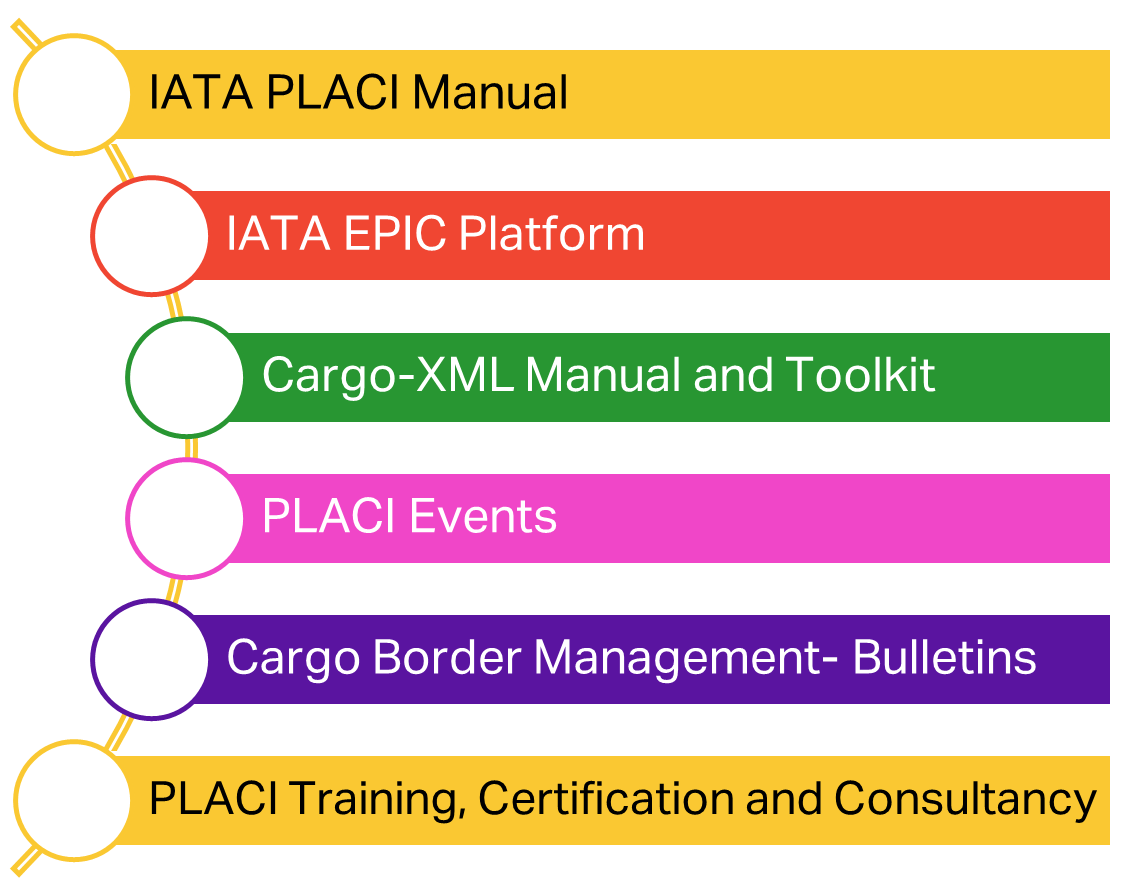
To combat with the ever-increasing security threats, authorities are continuously enhancing their cargo security programs. Aimed at the safety of people and goods, these security programs are generally based on a risk management approach based on the advance collection of shipment data. Such risk management approach is focusing on the supervision and monitoring of the flow of goods into the country, to anticipate risk and facilitate legitimate trade while ensure the mitigation of safety and security threats.
The importing country acquires advance shipment data to assess whether an intervention is needed and if so, what type of appropriate actions should be taken based on the assessment results (e.g. immediate withdrawal of the shipment from the supply chain, additional inspection or information).
Fundamental principles of risk management approach are:
Independent security experts, individual governments as well as international organizations such as International Civil Aviation Organization (ICAO), World Customs Organization (WCO) and International Air Transport Associations (IATA), collaborate to proactively create a safe and secure environment for the free flow of trade across borders. The development and implementation of regulations using harmonized standards are essential for the creation and maintenance of a safe and secure environment.
Responding to security threats and incidents, WCO and ICAO have jointly introduced in 2019 an additional layer in the management of air cargo security risk. As a result, Customs and aviation authorities are increasingly enforcing new security protocols to identify any potential ‘bomb in the box’ before shipments are loaded onto aircraft. This additional security layer comes on top of existing security regimes based on pre-arrival Advance Cargo Information (ACI) requirements. The new security regime, focused on assessing the risk prior to shipment loading, is called Pre-Loading Advance Cargo Information (PLACI). One of the key challenges for the industry is to comply with multiple PLACI initiatives while maintaining the speed and flow of cargo. IATA’s role is therefore crucial as it is the only organization able to develop appropriate and complete international standard business processes for an efficient, harmonized, and standardized implementation of PLACI standards.
Below is the list of current PLACI regimes either implemented or at pilot stage:
Pre-arrival ACI enables Customs to target and risk-assess cargo shipments for a range of regulatory issues in advance of the arrival to the country of destination. This enables authorities in the import country to set aside and inspect shipment for various purposes (duty collection, embargo, consumer protection, etc.), concentrating their efforts and resources on suspicious shipments while accelerating the flow of legitimate goods. By contrast, PLACI is an additional layer of a multi-layered approach to aviation security focused on addressing terrorist risks. In a PLACI regime, initial risk assessment occurs prior to the aircraft’s loading of shipment at the last point of departure before the port of entry.
A complete comparison between the Pre-arrival ACI and PLACI initiatives is shown in the table below:
| Pre-arrival ACI | PLACI | ||
| Data | Complete set of shipment data (30-70 data elements) |
Limited set of advance data (“7+1” data elements). However, some PLACI programs (e.g. EU ICS2) are requesting specific, additional data elements, for example:
|
|
| Submission Checkpoint | Port of last entry into the country | Port of last entry into the country | |
| Filing Timeline |
Prior Arrival for:
|
As early as possible prior Shipment Loading | |
| Shipment Control |
Destination:
|
Origin Pre-loading:
|
|
| Responsible Parties |
|
Carrier Optional, depending on the applicable regime: Freight Forwarders |
|
| Operational Processes & Referrals | None |
|
|
| Business Rules | Standard |
Extended |
|
As of 2023, 35% of the world annual cargo shipments are being regulated by the individual PLACI initiatives by EU, UK, UAE, and Canada authorities. The graph depicts the percentage breakdown of world cargo traffic regulated by individual PLACI programs:
|
 |
Airlines and freight forwarders must take steps and measures to ensure compliance with these new security directives otherwise they face consequences. Non-compliance to PLACI requirements may result into:
For any organization, to be successfully compliant with applicable PLACI regimes, the appropriate business processes and right technical solutions must be in place for appropriate data management. The data management under PLACI regime includes:
In addition, quality control/compliance check procedures must be introduced to ensure that all shipments are compliant with the various PLACI requirements applicable throughout the complete journey.
Quality control/compliance check procedures must be introduced to ensure that shipment is compliant with destination requirements throughout its journey.
The table below summarizes the PLACI implementation requirements:

PLACI programs are very complex to implement. The PLACI initiatives that have been deployed have showed that trade disruptions and financial consequences occur immediately if all aspects are not considered from the start. Some of the challenges experienced with the past PLACI deployments were the following:
Any dysfunction in the deployment of a PLACI program will have an immediate impact on trade flow and may create security loopholes.
|
To facilitate the industry compliance with PLACI regulations, IATA has engaged the industry into several activities and developed several solutions to assist:
|
 |
|
The IATA PLACI manual provides harmonized and standardized procedures for advance cargo information filing in one unique, comprehensive manual. It enables users to improve procedural efficiency and ascertains their compliance with the preloading advance cargo information regulatory requirements, through a set of guidance, related business processes and documentation on each applicable PLACI initiative. |
|
|
The IATA EPIC (for Enhanced Partner Identification and Connectivity) Platform is the global repository where airlines, freight forwarders, customs, ground handlers, GSAs and IT service providers can find and engage their cargo partners for establishing digital connectivity. Electronic messaging/API capabilities, digital connection possibilities and technical contacts of every cargo partner are essential for data filing into PLACI systems. IATA EPIC enables its users to effectively collaborate with their business partners by connecting efficiently using the most feasible and cost-effective setups. EPIC is gaining industry popularity. As of 2023, IATA EPIC data statistics include 101 Airlines, approximately 1300 Freight Forwarders, 24 GSAs, 18 IT Companies/CCSs, 15 Governments, 6 Handlers.
|
EPIC saves 40% time of a permanent resource while reducing the time to connect from weeks to minutes! |
|
The IATA Cargo-XML Manual and Toolkit delivers the Cargo-XML standard to the air cargo industry. The Cargo-XML standard messages are used for electronic communication between airlines and other air cargo supply chain stakeholders, such as shippers, freight forwarders, ground-handling agents, and regulators, as well as customs and security agencies. These standard messages are therefore essential to communicate with PLACI implementing authorities as well as business partners in supply chains whose routing is going through PLACI territories.
|
|
|
IATA organized some PLACI events and workshops. The latest was held in June 2023, together with regulators from EU and other interested countries. It made it possible for all impacted stakeholders to discuss many important points on the implementation of PLACI programs, in the EU and also in other parts of the world where such programs are being developed. The summary of this essential workshop, as well as all the slides used during this event, can now be found in the toolbox of the PLACI manual. Other events will occur in the future and can be found on the IATA Events page. |
|
Additionally, the Cargo Border Management (CBM) Bulletins are free of charge and are dispatched to any air cargo stakeholder interested to be updated on recent customs and security developments impacting directly air cargo operations. Subscribe to the CBM Bulletins by registering at cbm@iata.org.
Finally, IATA is delivering PLACI Training, Certification and Consultancy to people interested in understanding the entire global logistics supply chain and the appropriate changes in business processes to support their compliance efforts regarding PLACI. Learn more about PLACI Training.